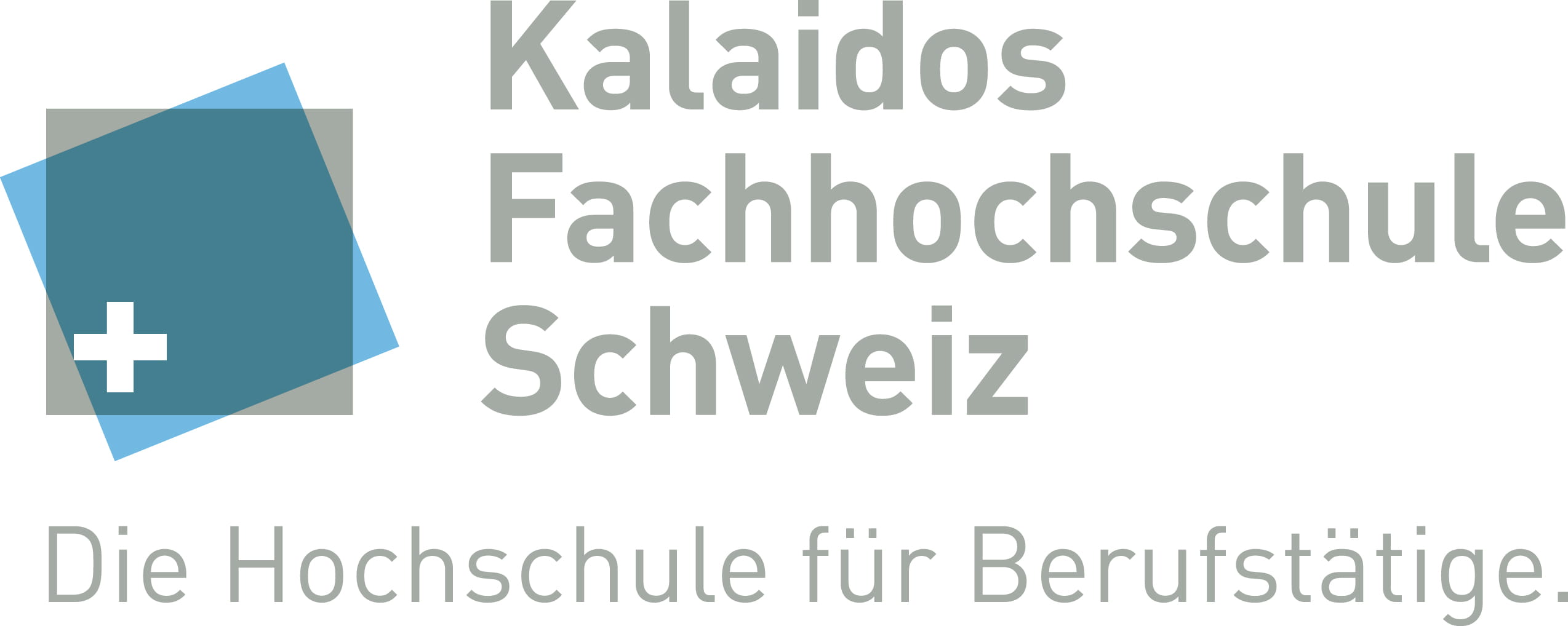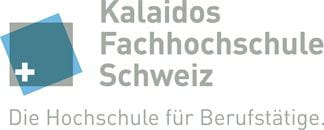Dr. phil. Konstantin Schenkel Studiengangsleiter
Kalaidos School of Applied Psychology, Prorektorat Lehre
Studiengangsleiter für
Bachelor of Science FH in Angewandter Psychologie
Master of Science FH in Angewandter Psychologie
Mitgliedschaften in Berufsverbänden
- Deutsche Gesellschaft für Psychologie (DGPs)
- European Health Psychology Society (EHPS)
- International Association of Applied Psychology (IAAP)
Hochschuldidaktische Weiterbildung
Teaching Skills Programm der Arbeitsstelle Hochschuldidaktik der Universität Zürich
(Abschluss mit Zertifikat Oktober 2020)
Forschungsschwerpunkte
- Entwicklung und Evaluation theoriebasierter Interventionen
- Körperliche Aktivität
- Medienkonsum
- Hypertonie und Stress
- Aversive Kindheitserfahrungen
- Intraindividuelle Prozesse der Veränderung gesundheitsrelevanten Verhalten
Ausbildung
- 09/2021: PhD in Psychologie, Universität Zürich, CH; Thesis: Health behavior in the context of digitalisation: challenges and opportunities of digital technologies (summa cum laude)
- 12/2016: Master of Science in Psychologie, Technische Universität Darmstadt, DE; Masterarbeit: Power-App: Eine Applikation für die Motivierung zu Krafttraining mit Stressreduktion
- 10/2014: Bachelor of Science in Psychologie, Technische Universität Darmstadt, DE; Bachelorarbeit: Der Zusammenhang zwischen Neurotizismus, Empathie und Beziehungsqualität – Eine dyadische Analyse von Paargesprächen
Berufserfahrung
- Seit 04/2025: Studiengangsleiter Angewandte Psychologie
- Seit 01/2023: Oberassistent am Psychologischen Institut, Angewandte Sozial- und Gesundheitspsychologie (Prof. Dr. Urte Scholz)
- 05/2023-06/2023: Forschungsaufenthalt an der Bergischen Universität Wuppertal, DE, Prof. Dr. Radtke
- 10/2021-12/2022: Postdoc und Dozent am Psychologischen Institut, Angewandte Sozial- und Gesundheitspsychologie (Prof. Dr. Urte Scholz)
- 02/2020: Forschungsaufenthalt an der Universität Witten/Herdecke, DE, Prof. Dr. Radtke
- 04/2019: Forschungsaufenthalt an der SWPS University of Social Sciences and Humanities Wroclaw, PL, Prof. Dr. Luszczynska
- 04/2017-09/2021: Doktorand am Psychologischen Institut, Angewandte Sozial- und Gesundheitspsychologie, Universität Zürich, CH (Prof. Dr. Urte Scholz)
- 07/2016-02/2017: Forschungspraktikant, Arbeits- und Ingenieurpsychologie, Technische Universität Darmstadt, DE
- 07/2015-10/2016: Studentische Hilfskraft, Dezernat VIII Internationale Beziehungen und Mobilität, Technische Universität Darmstadt, DE
- 08/2013-09/2013: Praktikum am Universitätsklinikum Heidelberg auf der Station Allgemeine Klinische Medizin (AKM)
- 09/2012-07/2013: Auslandsstudium der Psychologie an der University of Hertfordshire, UK
Lehrtätigkeit
- Seit 2017: Seminar "Forschungskolloquium" im Masterstudiengang Psychologie an der Universität Zürich
- 2018: Seminar "Soziale Beziehungen und Gesundheit" im Masterstudiengang Psychologie an der Universität Zürich
- 2018: Seminar "Gesundheitsverhaltensänderung" im Masterstudiengang Psychologie an der Universität Zürich
- 2019, 2020, 2023: Seminar "Gesundheitsverhalten: Wie kann man die Gesundheit von Kindern und Jugendlichen positiv beeinflussen?" im Bachelorstudiengang Psychologie an der Universität Zürich
- 2022, 2024: Vorlesung "Gesundheitspsychologie" im Masterstudiengang Psychologie an der Universität Zürich
- 2023, 2024, 2025: Seminar "Ambulatory Assessment" im Masterstudiengang Psychologie an der Universität Zürich
Rhodes, R.E., Banik, A., Szczuka, Z., Aulbach, M.B., DeSmet, A., Durand, H., Gatting, L., Green, J., Hillison, E.Z., Masaryk, R., Radtke, T., Rigby, B.P., Schenkel, K., Warner, L.M., Jones, C.M. & Luszczynska, A. (2024). Extending our understanding of the social determinants of physical activity and sedentary behaviors in families: A systems mapping approach. Journal of Physical Activity & Health
Schenkel, K., Nussbeck, F. W., Kerkhoff, D., Scholz, U., Keller, J., & Radtke, T. (2024). Digital generation: the association between daily smartphone app use and well-being. Behaviour & Information Technology, 1–18. https://doi.org/10.1080/0144929X.2024.2406255
Zofia Szczuka, Z., Kulis, E., Banik, A., Boberska M., Siwa, M., Zaleskiewicz, H., Krzywicka, P., Knoll, N., Radtke, T., Schenkel, K., Dunton, G. F., Luszczynska, A (2024). Effects of Physical Activity Planning Interventions on Reducing Sedentary Behavior in Parent-Child Dyads: A Randomized Controlled Trial. Journal of Applied Psychology: Health and Well-Being.
Kulis, E., Szczuka, Z., Banik, A., Siwa, M., Boberska, M., Wietrzykowska, D., Zaleskiewicz, H., Rhodes, R.E.,
Radtke, T., Schenkel, K., Knoll, N., Scholz, U., & Luszczynska, A. (2024). Individual, Dyadic,
Collaborative Planning, Physical Activity, and Nutrition: A Randomized Controlled Trial in Parent-
Child Dyads. Health Psychology
Kulis, E., Szczuka, Z., Banik, A., Siwa, M., Boberska, M., Zarychta, K., Zaleskiewicz, H., Knoll, N., Radtke, T., Scholz, U., Schenkel, K., & Luszczynska, A. (2023). Physical activity planning interventions, body fat and energy-dense food intake in dyads: Ripple, spillover, or compensatory effects? Psychology & Health, 0(0), 1–21. https://doi.org/10.1080/08870446.2023.2233001
Szczuka, Z., Siwa, M., Abraham, C., Baban, A., Brooks, S., Cipolletta, S., Danso, E., Dombrowski, S. U., Gan, Y., Gaspar, T., Matos, M. G. de, Griva, K., Jongenelis, M., Keller, J., Knoll, N., Ma, J., Miah, M. A. A., Morgan, K., Peraud, W., Quintard, B., Shah, V., Schenkel, K., Scholz, U., Schwarzer, R.,Taut, D., Tomaino, S., C., M., Vilchinsky, N.,Wolf, H., Luszczynska, A. (2023). Handwashing adherence during the COVID-19 pandemic: A longitudinal study based on protection motivation theory. Social Science & Medicine, 317, 115569.
Luszczynska, A., Szczuka, Z., Abraham, C., Baban, A., Brooks, S., Cipolletta, S., Danso, E., Dombrowski, S. U., Gan, Y., Gaspar, T., Gaspar de Matos, M., Griva, K., Jongenelis, M., Keller, J., Knoll, N., Ma, J., Miah, M. A. A., Morgan, K., Peraud ,W., Quintard, B., Shah, V., Schenkel, K., Scholz, U., Schwarzer, R., Siwa, M., Taut, D., Tomaino,, S. C. M., Vilchinsky, N., & Wolf, H. (2022). The interplay between strictness of policies and individuals’ self-regulatory efforts: associations with handwashing during the COVID-19 pandemic. Annals of Behavioral Medicine, 56 (4), 368-380. https://doi.org/10.1093/abm/kaab102
Schenkel, K., Haug, S., Paz Castro, R., Lüscher, J., Scholz, U. Schaub, M. P., Radtke T. (2022). One SMS a day keeps the stress away? A just-in-time planning intervention to reduce occupational stress among apprentices. Applied Psychology: Health and Well-being. https://doi.org/10.1111/aphw.12340
Keller, J., Roitzheim, C., Radtke, T., Schenkel, K., & Schwarzer, R. (2021). A mobile intervention for self-efficacious and goal-directed smartphone use in the general population: Randomized controlled trial. JMIR Mhealth Uhealth, 9(11), e26397. doi:10.2196/26397
Szczuka, Z., Abraham, C., Baban, A., Brooks, S., Cipolletta, S., Danso, E., . . . Luszczynska, A. (2021). The trajectory of COVID-19 pandemic and handwashing adherence: findings from 14 countries. Bmc Public Health, 21(1). https://doi.org/10.1186/s12889-021-11822-5
Radtke, T., Apel, T., Schenkel, K., Keller, J., von Lindern, E. (2021). Digital detox: An effective solution in the smartphone era? A systematic literature review. In Mobile Media & Communication, 1-25. doi.org/10.1177%2F20501579211028647
Schenkel, K., Radtke, T., Luszczynska, A., Lüscher, J., Kulis, E., & Scholz, U. (2021). From a mother's point of view: Psycho-social predictors of maternal monitoring strategy and adolescents' electronic media use. Journal of Adolescence, 88, 134-145. doi.org/10.1016/j.adolescence.2021.02.008
Radtke, T., Liszewska, N., Horodyska, K., Boberska, M., Schenkel, K., & Luszczynska, A. (2019). Cooking together: The IKEA effect on family vegetable intake. British Journal of Health Psychology (Version of Record online: 26 September 2019). doi:10.1111/bjhp.12385
Radtke, T., Luszczynska, A., Schenkel, K., Biddle, S., & Scholz, U. (2018). A cluster randomized controlled trial comparing the effectiveness of an individual planning intervention with collaborative planning in adolescent friendship dyads to enhance physical activity (TWOgether). BMC Public Health, 18, 911. doi.org/10.1186/s12889-018-5818-6



